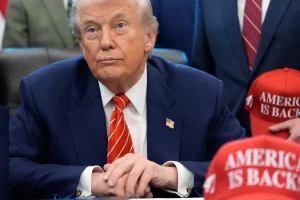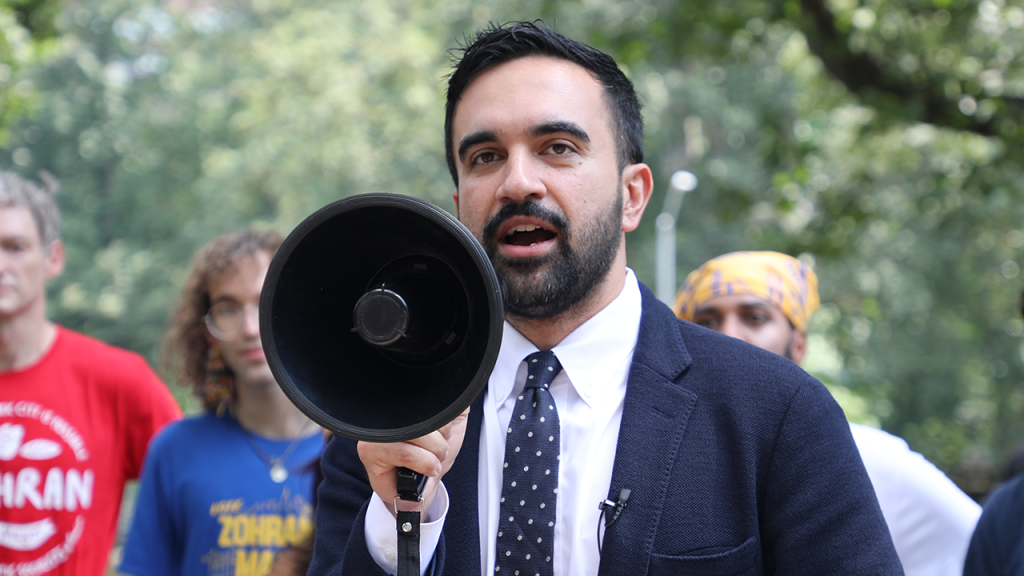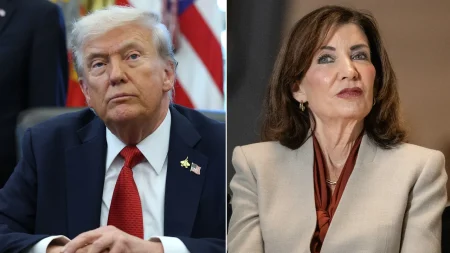New Poll Shows Mamdani Leading NYC Mayoral Race and Israel-Palestine Messaging
A recent New York Times/Siena College poll has revealed surprising insights into the New York City mayoral race, with socialist candidate Zohran Mamdani taking a commanding lead over his competitors. The survey, conducted from September 2-6, shows Mamdani with 46% support among likely voters, significantly ahead of former Governor Andrew Cuomo at 24%, Republican Curtis Sliwa at 15%, and incumbent Mayor Eric Adams trailing at just 9%. This substantial lead has raised eyebrows across the political spectrum, particularly given Mamdani’s progressive platform and controversial positions on several key issues, including policing and the Israel-Palestine conflict.
When it comes to addressing the Israeli-Palestinian conflict during the campaign, Mamdani again leads the field with 43% of likely voters believing he has best addressed the issue, followed by Cuomo at 16%, Adams at 11%, and Sliwa at 8%. The poll also revealed that 46% of likely voters sympathize more with Palestinians compared to 29% who sympathize with Israel, indicating a potential shift in New York City voters’ perspectives on this contentious international issue. Mamdani’s positions on Israel have become a focal point in the race, drawing criticism from many in the Jewish community for his past statements, including social media posts that critics claim mocked Jewish people, his refusal to denounce the phrase “globalize the intifada,” and his support for economic boycotts of Israel.
Human rights attorney Brooke Goldstein expressed concern about these poll results, describing them as “deeply troubling” and characterizing Mamdani as “an anti-Israel radical, a pro-Hamas sympathizer in a suit.” Similarly, a spokesperson for StopAntisemitism told Fox News Digital that Mamdani’s lead “underscores the growing hostility towards Israel we are seeing in New York” and warned that his victory would be “disastrous” for the city. They further suggested that “the fact that so many New Yorkers view Mamdani as the best voice on Israel and Palestine is a sign of how deeply antisemitism has taken root in the city” and claimed his rise is about “the normalization of antisemitism through extremist groups.”
Despite crime and safety being cited as the top concern among 30% of likely NYC voters, Mamdani still leads when voters were asked which candidate would do the “best” job addressing crime, with Cuomo following at 29%, Sliwa at 23%, and Adams at 15%. This is particularly noteworthy given Mamdani’s past calls to defund the police and his critical comments about the New York Police Department. Rafael Mangual from the Manhattan Institute offered a different perspective on these numbers, suggesting that “70% don’t trust him on crime” and that “those skeptical of Mamdani’s approach to public safety are split between three candidates.” The poll also indicated that in a head-to-head race between Cuomo and Mamdani, the lead would narrow significantly to just four points.
The Mamdani campaign has framed these poll results as a rejection of establishment politics and wealthy interests. Campaign spokesperson Dora Pekec stated, “New York City is not for sale. The backroom scheming from Donald Trump and the billionaire class is backfiring, as New Yorkers see Zohran Mamdani is the only candidate who will fight to make the most expensive city in the country more affordable.” This messaging appears to be resonating with many voters who are seeking alternatives to traditional candidates. Pekec added that their campaign is “building a movement that puts working people first – mobilizing thousands to get involved in the democratic process and fight for a new kind of politics.”
As the mayoral race continues to evolve, the stark divisions among New York City voters on issues ranging from public safety to international relations highlight the changing political landscape of America’s largest city. Mamdani’s surprising lead suggests a potential shift in voter priorities and perspectives, particularly among younger and more progressive voters. However, with significant time remaining before the election and strong opposition from various quarters, including concerns about his positions on Israel and public safety, the race remains dynamic and unpredictable. What’s clear is that New York City voters are seriously considering a candidate who represents a marked departure from traditional mayoral politics, signaling possible broader changes in urban political trends across the country.














